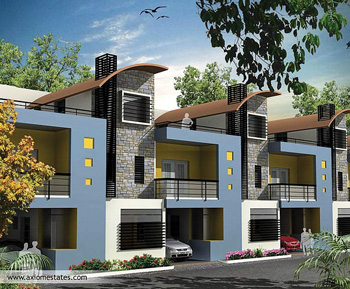
Real estate therapy is an extension of retail therapy – except the stakes are higher and there are not as many players. You will find more people buy clothes or gadgets for 'feel-good' therapy than stack up houses on their shopping list. Yet real estate therapy is a reality.
Psychological Issues
Real estate – buying and selling – is tied up in psychology as much as it is in money. More than one person moves – and moves again – and again – not out of necessity – but for psychological reasons. Often people move because they need a bigger home or they see it as an investment. Some home owners keep buying and renovating and making a profit.
On The Move
Yet there is another group of home buyers that stay 'on the move' for other reasons – a need to keep moving forward, a desire to keep up, a drive to acquire more "stuff" ( in this case, houses). Another possibility is that real estate therapy is just retail therapy - gone out of control. Of course, buyers who trade houses like shoes might be in the minority.
Playing It Cool
You cannot, however, take the psychology of 'buying and selling' out of real estate. Sellers do not want to seem too desperate to get rid of their home. Buyers do not want to seem too eager to close the deal. Both sides have to play it cool throughout the process.
Nobody wants the other side to sense their urgency or excitement – depending on your position. Buying and selling is a delicate dance. Nobody should try to step on anyone's toes. Everyone wants to come out of this 'feeling good' about the deal. It is human nature to want to feel that you got the best deal.
Buying and Selling
'Buying and selling' is influenced by emotions. Over–priced houses belong to people who cannot let go of their emotional attachment to their home. Often sales happen because buyers have a specific vision of the 'perfect' home. Of course, they envision a "perfect life" in a "perfect home." No matter how practical you think you are, your reaction to a home has a psychological basis.
Housing Bubble
Indeed, industry experts even refer to the 'psychological' stages of the market as it works off a housing bubble. The distinct stages of a housing bubble include enthusiasm, greed, denial, worry, capitulation, and loss of hope. In the 'enthusiasm' stage, lenders extend a welcoming hand to buyers.
Everyone feels feverish, everything is looking great, and everyone makes money in the second stage of the housing bubble. Yet as prices decline, people go onto denial. With regards to market psychology, there is not much distinction between the capitulation (surrender) stage and the state of despair.
Foreclosure
Foreclosure can be the end stage for many home owners. Since people have such intense attachments to their homes, foreclosure can be a devastating experience. On the positive side, foreclosure allows people to let go of a burden, move forward, and rebuild their lives. Yet few home owners who are in danger of foreclosure can see the positive angle. Home ownership is a psychological issue.
Are You Planning A Little Real Estate Therapy?